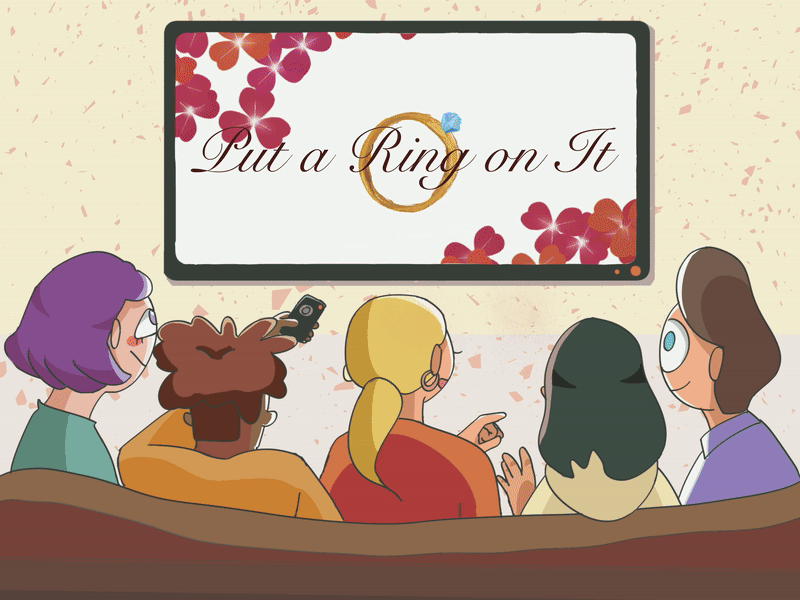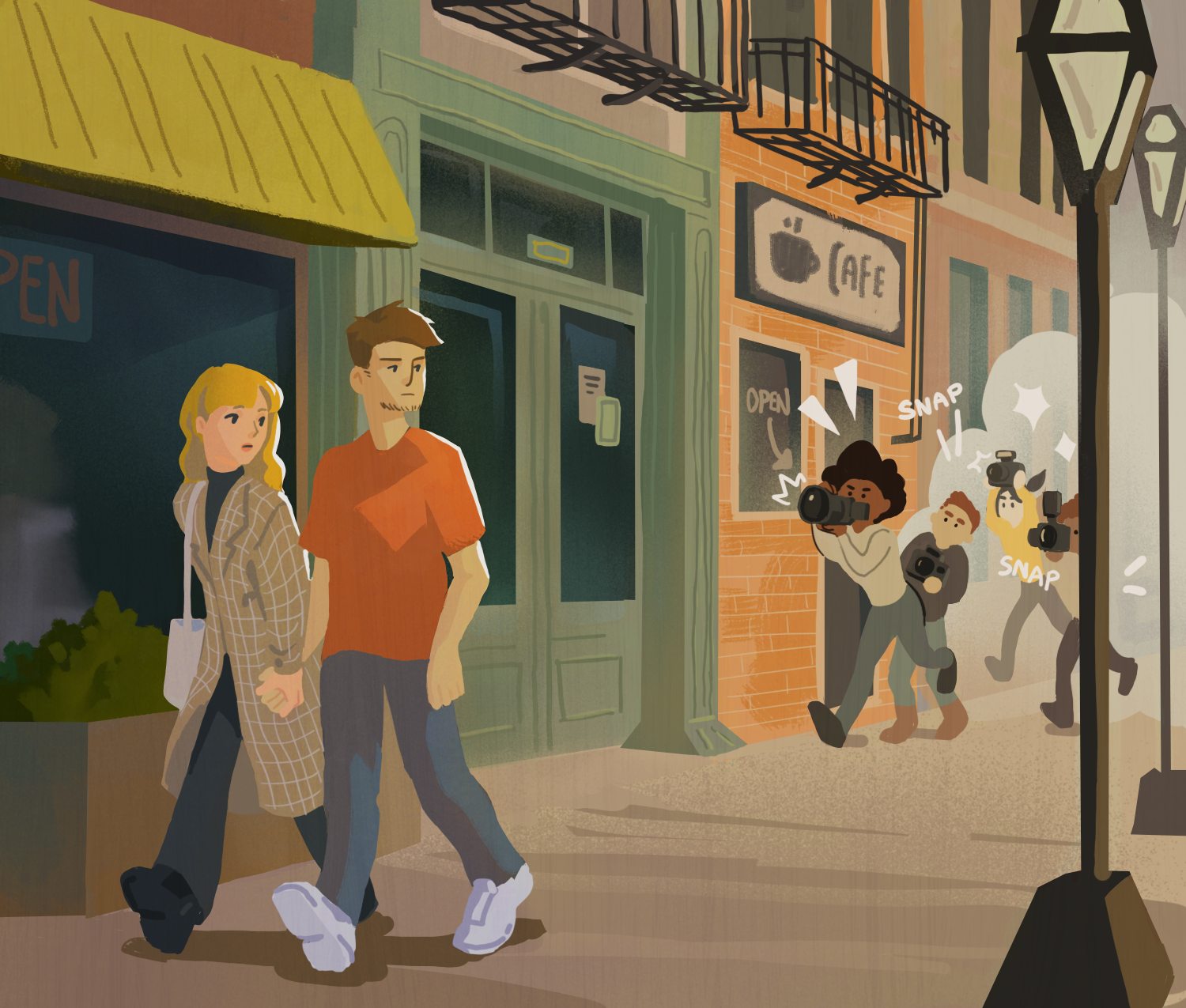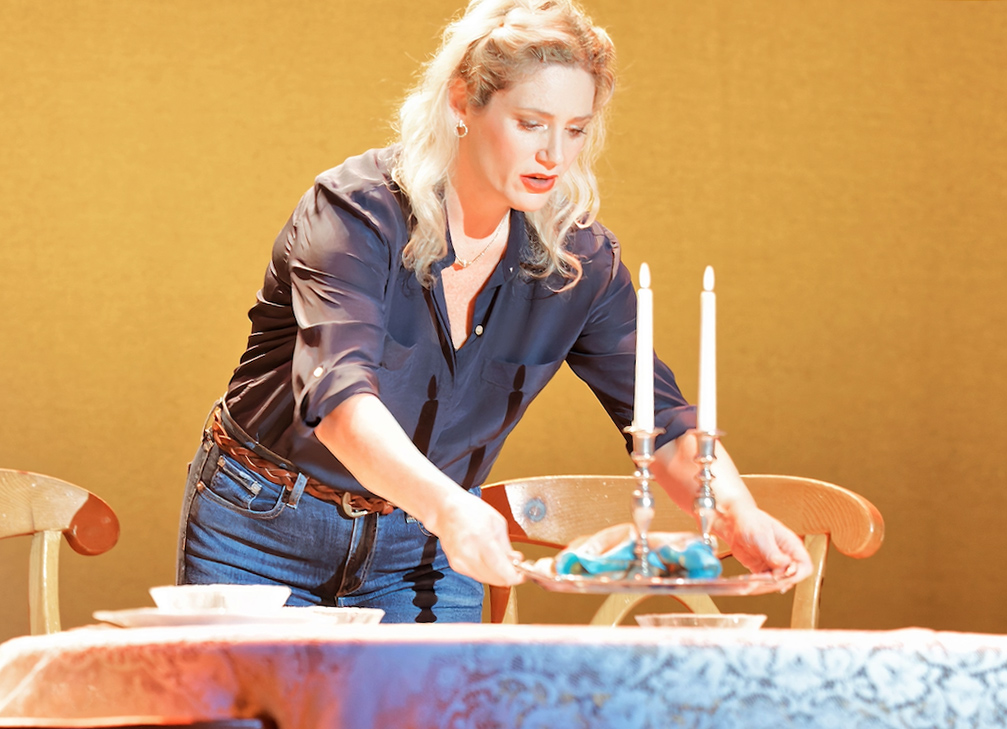Dating shows continue to evolve, alter perceptions of real-life relationships

This post was updated February 25 at 11:47 p.m.
While some Bruins fall in love through dating apps or in-person interactions, others participate vicariously through TV shows.
Dating shows, a form of reality TV, have become popular as new shows and novel formats of this genre are released every year. Consumption of these shows can be productive for entertainment but can also have its drawbacks.
Mandy Lai, a third-year cognitive science student, said dating shows are popular among people she knows, with her friend group regularly meeting up to watch them together. She added that she enjoys observing how people outside her direct social circle engage in the dating scene.
“With my own social circle, it’s very limited. I only know the stories happening with me and my friends,” Lai said. “But I’m aware that out there, in the large dating scene, maybe something more fun, more exciting is happening.”
Dating shows trace to 1965, when ABC Network released “The Dating Game.” Contestants would ask questions to three potential suitors hidden behind a wall, with the hopes of ending up with their perfect match and embarking on a romantic dinner date off air. This program drew the attention of many American viewers, helping launch a new staple genre within reality TV, according to Business Insider.
The formats and contexts of dating shows have become more creative to engage audiences through novelty. For instance, ABC’s “The Bachelor” follows one man as he dates around 25 to 35 women who all live together in a California mansion for eight to 10 weeks. According to IMDB, more than 6 million viewers watched the latest season finale, a 19% increase from the season’s first episode.
Other shows include Netflix’s “Love Is Blind,” where cast members date each other from individual pods, which prevent them from seeing each others’ faces and reinforce the theme of valuing emotional over physical connection, according to Variety. The show was the second-most streamed original series on Netflix last year with over 16 billion minutes viewed, according to Nielsen data.
Demand for these types of reality shows is driven by the human psyche.
Benjamin Karney, a psychology professor and co-director of the UCLA Marriage and Close Relationships Lab, said dating shows can be appealing because they allow viewers to escape from reality and glimpse into the intimate lives of others.
“What I’m hearing about is something very, very intimate. Again, stuff that I typically don’t hear about other people’s lives,” Karney said. “So seeing that process play out might be appealing to a lot of people.”
A study published in the National Library of Medicine found that participants who watched films with dramatic plots involving intense emotions released hormones in the brain called endorphins, which lower the feeling of pain while enhancing the feeling of belonging in groups.
Despite the positive emotional response they can induce, reality dating shows can be misleading and stereotypical. For instance, editors of reality TV shows practice Frankenbiting, a method of editing and splicing footage that leads to the exaggeration of interactions, according to TIME.
These editing techniques may not be known to the viewer, so taking these shows too seriously can lead to consequences such as harming people’s perceptions of relationships and altering how they act in their own lives, communication professor Michael Suman said.
Additionally, dating shows can be edited to portray stereotypes of groups. For example, a study from the University of Wisconsin found that participants exposed to reality shows portraying stereotypes of women were more likely to believe that women engaged in negative actions such as verbal aggression and spreading rumors.
Dating show stars themselves can also diminish the authenticity of dating shows by changing the way they behave for superficial reasons, Karney added.
“Is it possible that two people on a reality show might genuinely fall in love? It is possible. All things are possible in love, but it’s also very possible that people will perform what they need to perform in order to get more camera time,” Karney said.
Still, as many people – including Bruins – continue to consume these shows, fictional entertainment can be productive for their own happiness or as a way to connect with friends, Karney added.
“If people are interested in dating shows, they should enjoy them and enjoy them for what they are,” Karney said.





